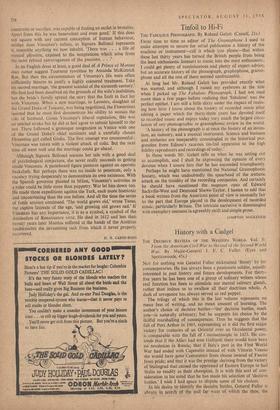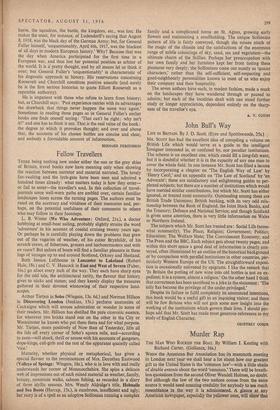horse, the squadron, the battle, the kingdom, etc., was lost.
He makes the most, for instance, of Ludendorff's saying that August 8, 1918, was the black day of the German Army; but, for General Fuller himself, 'unquestionably, April 6th, 1917, was the blackest of all days in modern European history.' Why? Because that was the day when America participated for the first time in a European war, and thus lost her potential position as arbiter of the world. It is a pretty thought, and by all means let us think it over; but General Fuller's 'unquestionably' is characteristic of his dogmatic approach to history. His reservations concerning Roosevelt and Churchill constitute positive assaults (and surely he is the first serious historian to quote Elliott Roosevelt as a reputable authority).
He is impatient with those who refuse to learn from history; but, as Churchill says : 'Past experience carries with its advantages the drawback that things never happen the same way again.' Sometimes in reading these pages as in General Fuller's earlier books one finds oneself saying : 'That can't be right : why isn't it?' and one has to think it out. That is the real value of the book : the degree to which it provokes thought; and over and above that, the accounts of his chosen battles are concise and clear, and embody a formidable amount of information.
BERNARD FERGUSSON



































 Previous page
Previous page